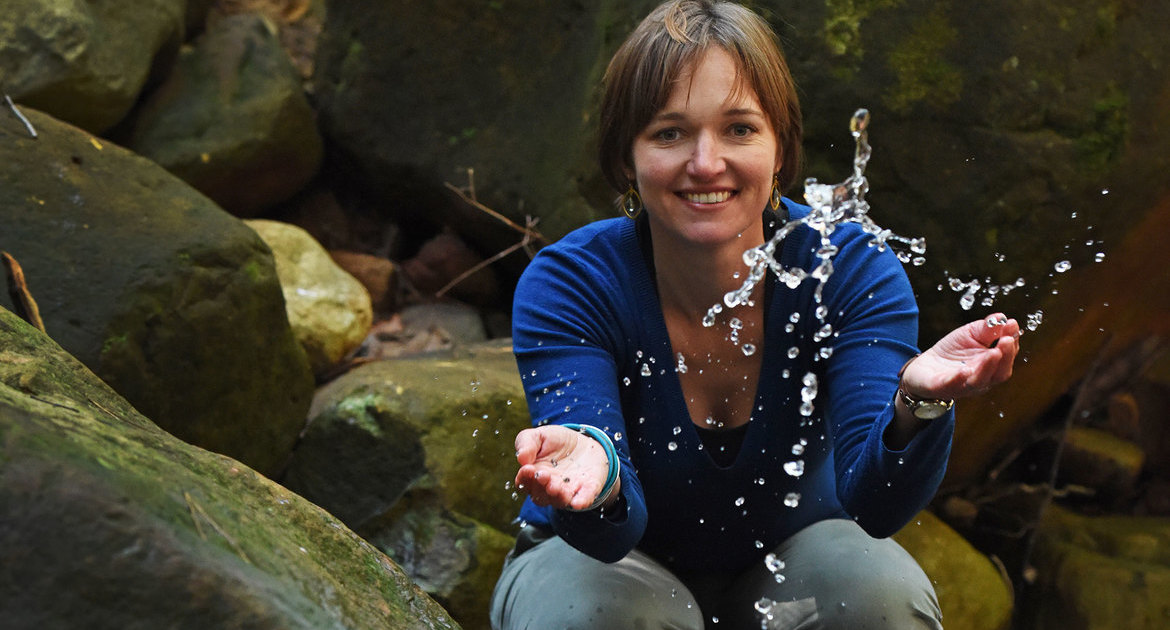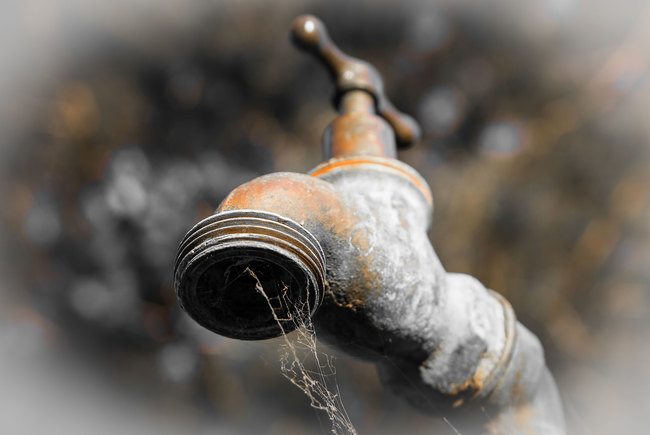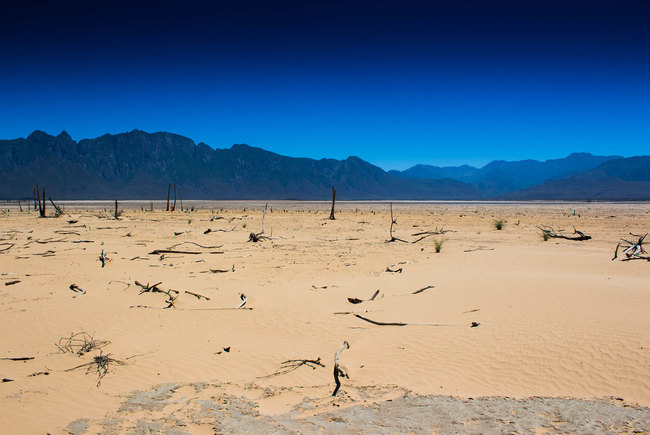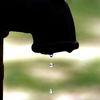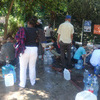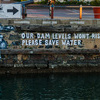What we've learnt from the drought
22 March 2017 | Story by Newsroom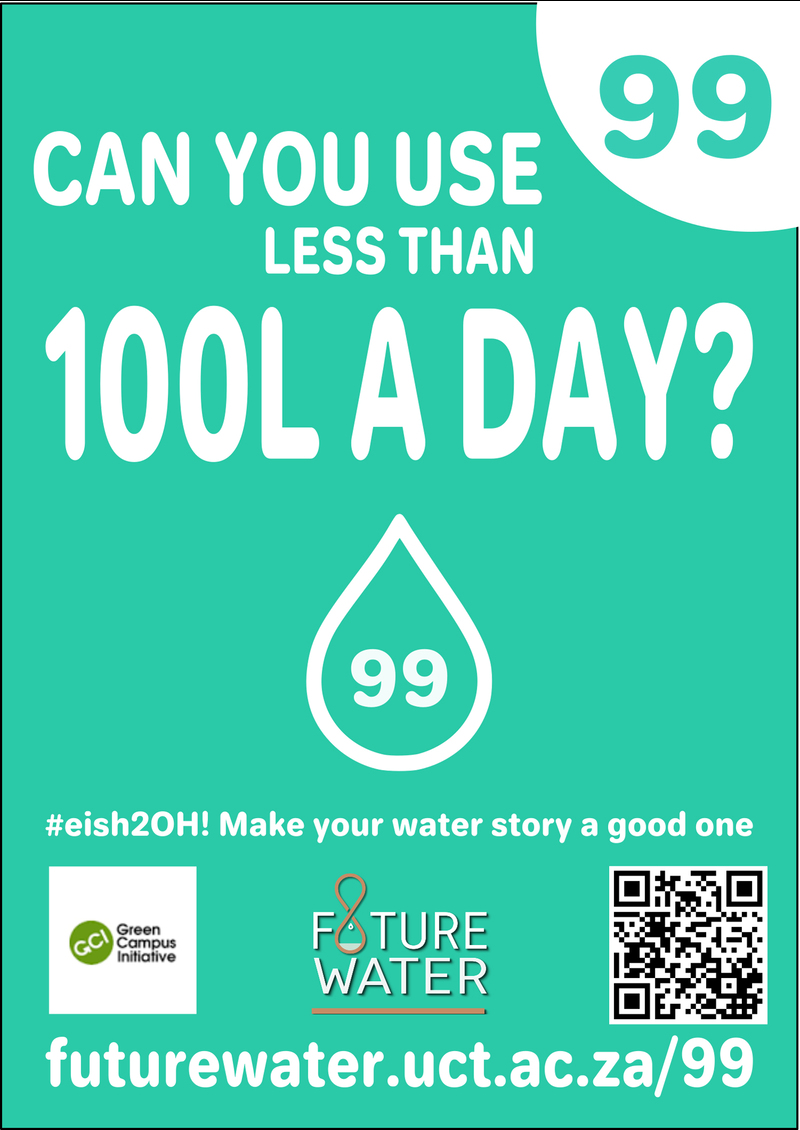
On World Water Day 2017, UCT's Dr Kevin Winter, from the Future Water Institute, considers the lessons that the current drought has to offer and looks forward to the solutions that must be put in place, and soon, if we are to avoid this same scenario in the coming years.
Water consumers in Cape Town rely almost entirely on stored surface water for drinking and every other purpose. There are not many countries that are capable of achieving water quality to potable standards.
The population of Cape Town has increased from 3.9 million (1996 census) to an estimated 6.4 million, which is an increase of 58%. But during this time, the stored water capacity has increased by only 14%.
In addition, the long hot dry summers from 2015 to the present, and the below average rainfall for the region, has reduced the viable water reserve to the current position of approximately 18%. The taps could run dry.
The lessons
What have we learnt from this crisis so far? To date, there are three important lessons:
- Water consumers are capable of using less water. Over the last 12 months, consumers have achieved the 30% reduction as required by Level 3 water restrictions – a reduction from 1.1 billion litres per day to 750 million litres per day.
- Rainfall variability over the Western Cape is taking water resource management into uncharted territory: climate uncertainty, increasing population, urbanisation and water demand. Government will need to react much faster with the implementation of restrictions, and have the capacity to keep these in place, to ensure that the main dams are at least 80% full by the end of October each year.
- This present crisis is also an opportunity to fast track initiatives that will make Cape Town a more water-sensitive, climate-resilient city. The lesson is that we have to be quicker and smarter in adapting to water scarcity.
The City of Cape Town reacted slowly to the decline in water storage levels, which became evident towards the end of October 2016. Although Level 1 restrictions were already in place, Level 2 restrictions were only introduced in January 2017, and it took a further six weeks before the effect of these restrictions were observed. The lag in this adjustment could be crucial. Level 3B restrictions were issued on 1 March, placing a further curb on water use for irrigating gardens, sports fields and constraining business activities that are highly reliant on water.
The City has struggled to bring the overall consumption to the level of 800 million litres per day and more recently to achieve a new target of less than 700 million litres per day for the city as a whole. The new target could be out of reach. Meanwhile, thousands of residents are engaged in social media, where advice and shared experiences are raising general awareness. There is lots of evidence showing how citizens are adapting to water scarcity, for example, by installing home-made grey-water and water-harvesting systems.
The City is set to continue its strategy to restrict water demand – and rightly so considering the immediate crisis. It will be a tragedy for a city of over six million people to be without water. It is likely that the tragedy will be averted for now, but it could be a close call because weather patterns are increasingly uncertain. And there are expectations of another below-average rainfall season ahead.
Future water
By 2021 the City, in conjunction with the National Department of Water and Sanitation, will introduce new schemes to exploit water from sources that include a small-scale desalination plant; water from the Table Mountain aquifer; pumping excess water from the Berg River Dam to the Voëlvlei Dam; and improving the yield from treated water. However, these medium- to long-term schemes will not help the immediate crisis.
This is the opportunity to take a bold new lead by investing in measures that will build a climate-proof, water-sensitive city. A multi-pronged approach is required to manage existing supplies efficiently and to access new water sources, including treated water, storm water and the sustainable abstraction of groundwater.
The future city of Cape Town will demonstrate how it values water as a critical resource that sustains human life adequately, provides dignity for all, and showcases the role of water in supporting the environment.
The current crisis represents a critical moment for fast tracking integrated, innovative, water cost-effective solutions that can be introduced over the next 12 months. It needs to start now as a catalyst for investing in medium- to long-term technologies, tools and techniques to ensure that the city never has to face the risk of running out of water.
This is an imperative, not an option.
Story Kevin Winter.
 This work is licensed under a Creative Commons Attribution-NoDerivatives 4.0 International License.
This work is licensed under a Creative Commons Attribution-NoDerivatives 4.0 International License.
Please view the republishing articles page for more information.
Cape Town water crisis
At UCT our researchers have been analysing the causes of the current drought, monitoring water usage on campus and in the city, and looking for ways to save water while there is still time. As part of UCT’s water-saving campaign, all members of the campus community are encouraged to reduce their water use by half, which will help Cape Town to meet its water-use goals and ensure a water-sustainable university in the future.












